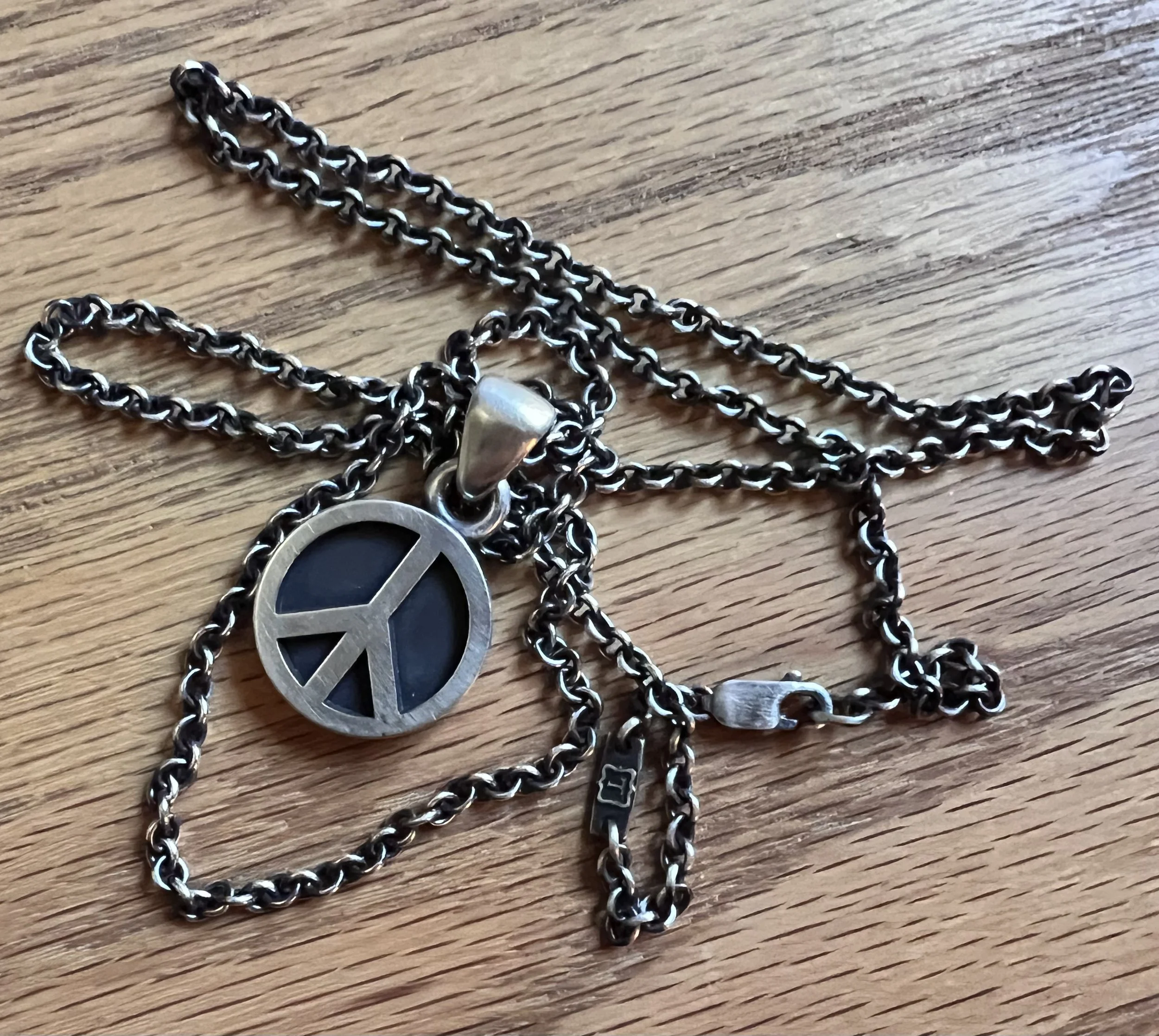IN PURSUIT
/I’M NOT SAYING that the pursuit of peace is insignificant or unworthy, just slipping toward insincere, or so it seems; but vital and essential.
Cynicism has always been in the battered bag of things that I allow to trip me up. Accelerating age seems to deepen and thicken it, along with my anger over prescription medicine advertisements on TV.
Still, I remain hopeful that peace in our hearts, in our families, and in our relationships will grow and grow. I would like to be optimisic about world peace but that nagging cynicism won't let me go there; particularly when the Pursuit of Peace is stamped official by being screenprinted on a backdrop behind high-positioned folk. So it seems the mission is handed over to those in pursuit of other things like power, domination, supremacy, or whatever satisfies their base hunger and lusts. All that just seems contrary to peace pursuance.
There are some things that some people may be ill-suited for, or maybe they're being dishonest with themselves, or maybe they are dishonest and just nearly-to-completely self-serving--their narcissism has killed any seed of imagination. Maybe, for example, someone wants a medal for peace-making so badly that they will cook up a crock of drama, masquerading as the greatest maker of peace of all the peace-makers ever.
It would be sort of like putting me in charge of guarding a cooling batch of no-bake cookies. I may boast of being a cookie guardian, but when it comes to keeping my hand out of the cookie jar, I'm weak, insatiable and lacking any moral backbone whatsoever. And there's a darker corner in here that makes me apathetic about whether anyone else gets a cookie or not.
Every single day I wear a Peace Sign pendant. I know all the words to John Lennon's song "Give Peace A Chance". One of my favorite passages is from the book of First Peter, chapter 3:
“Whoever wants to embrace life and see the day fill up with good, Here’s what you do: Say nothing evil or hurtful; Snub evil and cultivate good; run after peace for all you’re worth.”
My favorite of the Beatitudes is #7: Blessed are the peacemakers, for they will be called children of God. --Matthew 5:9
Does all that make me a peace-maker? Not any more than wearing a badge that says, "ICE: International Cookie Enforcer" and telling people that I love cookies even more than Cookie Monster himself makes me a worthy guardian of the no-back cookies cookie jar.
Some may sense a tinge of hypocracy here: me acting like a peacenik while throwing little rocks at those who have the power to end conflicts but don't. Guilty your honor(s).
So how does one become a maker, sustainer, propagator and keeper of peace?
The wisdom seems to be in that verse: "Say nothing evil or hurtful; Snub evil and cultivate good; run after peace for all you're worth." After all; who doesn't want to "embrace life and see the day fill up with good"?
Here's a shot of Our Grands, last Christmastime, that season when we sing and remember the story about "Peace On Earth"! [Trying to pass my belief in the goodness, truth and beauty of PEACE on to the next generation.]













